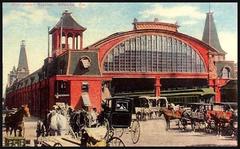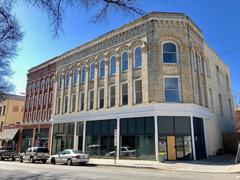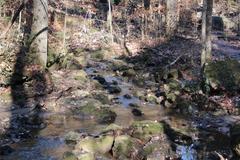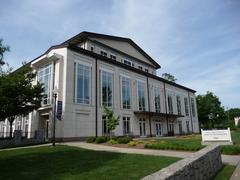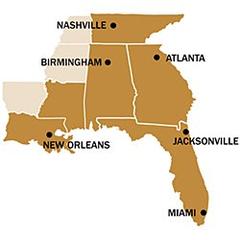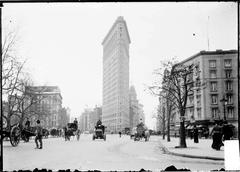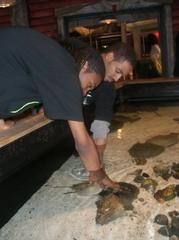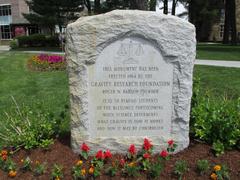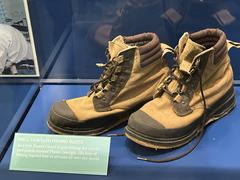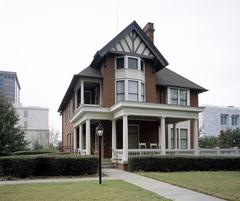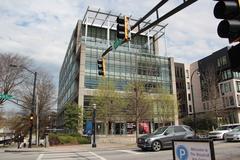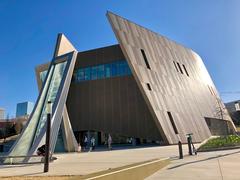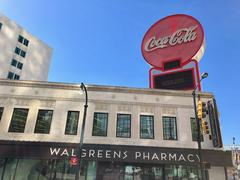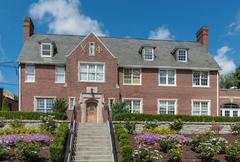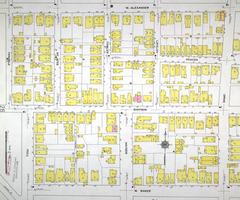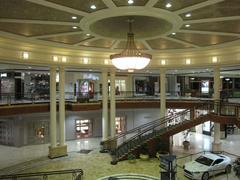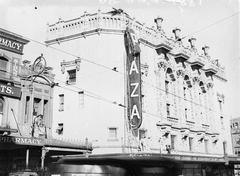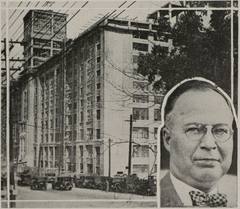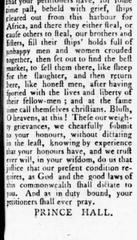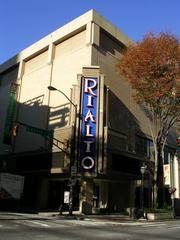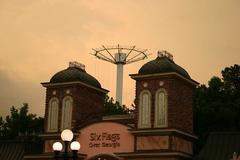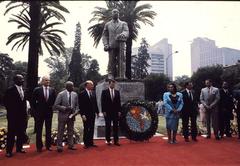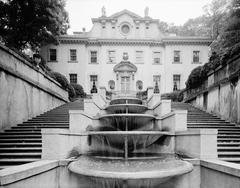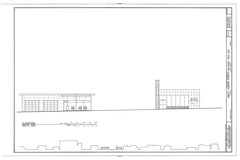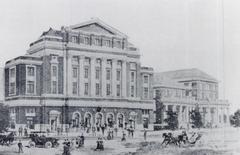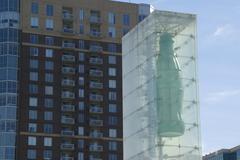
Georgia State University Visiting Guide: Atlanta Historical Sites, Tickets, and Hours
Date: 03/07/2025
Introduction: Georgia State University and Its Significance in Atlanta
Georgia State University (GSU) is a cornerstone of downtown Atlanta, serving not only as a hub for academic excellence but also as a living testament to the city’s historical and cultural evolution. Founded in 1913 as the Georgia Institute of Technology Evening School of Commerce, GSU was established to broaden higher education access for Atlanta’s working adults during a period of rapid commercial expansion. Over the past century, GSU has grown into a dynamic urban research university with an enrollment exceeding 52,000 students, representing one of the most diverse student bodies in the nation.
The GSU campus tells the story of Atlanta’s transformation, featuring notable landmarks such as Center Parc Stadium (formerly Turner Field from the 1996 Olympics), historic structures in the Fairlie-Poplar District, and innovative green spaces like the Blue Line walking path. Its proximity to major Atlanta attractions—Centennial Olympic Park, the Georgia Aquarium, and the Martin Luther King Jr. National Historical Park—makes GSU an ideal starting point for both educational and cultural exploration.
This guide offers a comprehensive overview for visitors, including essential information on visiting hours, ticketing, guided and self-guided tours, accessibility resources, parking, and practical travel tips. Whether you’re drawn to GSU for its historical heritage, urban vibrancy, or academic programs, this resource will help you make the most of your visit. For further historical context and visitor information, see the Georgia State University History Timeline, the GSU Welcome Center, and the AGB Case Study on GSU’s Innovation.
Table of Contents
- Georgia State University History
- Campus Landmarks and Historical Sites
- Visiting Georgia State University
- Special Events and Programs
- Nearby Attractions
- Visuals and Interactive Resources
- Frequently Asked Questions (FAQs)
- Practical Visitor Tips
- Conclusion and Call to Action
- References
Georgia State University History
Founding and Early Development (1913–1940s)
Georgia State University began in 1913 as the Georgia Institute of Technology Evening School of Commerce, created to provide educational opportunities for working adults in Atlanta (GSU History Timeline). Classes were held at night in rented spaces, reflecting the city’s growing commercial landscape. Under the leadership of Dr. George M. Sparks (appointed in 1928), the school weathered the Great Depression, maintaining independence and a commitment to serving Atlanta’s business community (Zippia GSU History).
Institutional Growth and Identity Formation (1940s–1960s)
In 1947, the institution became the Atlanta Division of the University of Georgia, marking a new phase of academic and administrative development (Zippia GSU History). Throughout the 1950s and 1960s, GSU expanded its academic offerings, introducing master’s and doctoral programs and laying the groundwork for its future as a major research university (GSU History Timeline).
University Status and Urban Expansion (1969–1990s)
The Board of Regents officially granted GSU university status in 1969 (Zippia GSU History). The following decades saw significant physical and academic expansion, with the university repurposing historic downtown buildings—such as the Atlanta Municipal Auditorium (now Alumni Hall) and the C&S Bank Building (now the Robinson College of Business). Expansion into the Fairlie-Poplar District included the acquisition of the Standard Building, Haas-Howell Building, and Rialto Theatre.
Modern Transformation and Innovation (2000s–Present)
GSU’s 21st-century transformation has been marked by ambitious student-success initiatives and urban revitalization projects. Notably, the Andrew Young School of Policy Studies moved to the former First National Bank Building in 2004, enhancing community engagement. In 2015, GSU renovated Turner Field into Center Parc Stadium, creating new athletic and community spaces (AGB Case Study). Enrollment now exceeds 52,000, with GSU recognized nationally for graduating African American students and supporting first-generation and Pell Grant recipients.
Campus Landmarks and Historical Sites
- Library South: Home to Special Collections & Archives, featuring exhibits on GSU and Atlanta’s history (GSU Special Collections).
- Rialto Center for the Arts: Historic venue for performances and cultural events.
- Center Parc Stadium: Formerly Turner Field, this stadium reflects GSU’s urban impact and Olympic legacy.
- Robinson College of Business: Located in the historic C&S Bank Building.
- Hurt Park: A restored two-acre green space, notable for its civil rights history.
- Georgia State Greenway: A pedestrian corridor lined with art and trees.
- Fairlie-Poplar Historic District: Home to many of GSU’s architecturally significant buildings.
Visiting Georgia State University
Visiting Hours and Admission
- Campus Outdoor Spaces: Open daily from dawn to dusk.
- Most Buildings: Typically accessible Monday–Friday, 8:00 AM–6:00 PM. Some facilities, such as Special Collections, have specific hours (usually 9:00 AM–5:00 PM, Monday–Friday).
- Admission: General campus access is free. Tickets are required for certain events, performances at the Rialto Center, and athletic games at Center Parc Stadium (Georgia State Panthers tickets).
Guided Tours and Visitor Services
- Guided Walking Tours: Free tours are offered by the GSU Welcome Center during the academic year. Advance registration is recommended.
- Self-Guided Tours: Maps and virtual tours are available online, allowing exploration at your own pace.
- Specialized Tours: Themed tours include campus history, urban renewal, and athletics. Book via the GSU Welcome Center.
Accessibility
GSU is committed to full ADA compliance:
- Accessible entrances, restrooms, and parking are available throughout campus.
- For tailored assistance, contact the GSU Disability Resource Center.
- MARTA rail and bus lines, as well as the Atlanta Streetcar, provide accessible transit to campus.
Parking and Transportation
- Visitor Parking: Designated garages with daily rates. See GSU Parking Services.
- Public Transit: Convenient MARTA and Atlanta Streetcar stops near campus; recommended for easy access.
- Cycling/Walking: The Blue Line and city sidewalks encourage foot and bike traffic.
Special Events and Programs
GSU’s calendar is filled with enriching events:
- Arts Festival: Annual celebration of music, theater, and visual arts.
- Atlanta History Month: Features themed tours and exhibits.
- Panthers Athletics: Home games at Center Parc Stadium.
- Commencement Ceremonies: Often require advance ticketing.
For current listings and ticketing, consult the GSU Events Calendar.
Nearby Attractions
GSU’s central location offers quick access to:
- Centennial Olympic Park: (0.5 miles) Legacy of the 1996 Olympics, hosting public events.
- Georgia Aquarium: (0.6 miles) One of the world’s largest and most popular aquariums.
- World of Coca-Cola: (0.7 miles) Interactive exhibits dedicated to the iconic brand.
- Center for Civil and Human Rights: (0.8 miles) Museum focused on global and local social justice.
- Underground Atlanta: Revitalized shopping and dining destination.
- Municipal Market (Sweet Auburn Curb Market): Local culinary hotspot.
Visuals and Interactive Resources
- Photo Galleries: High-quality images of campus landmarks and events, with descriptive alt text for accessibility and SEO.
- Virtual Tours: Explore GSU online via interactive 360-degree tours (GSU Virtual Tours).
- Maps: Downloadable and interactive campus maps (GSU campus map).
- Hidden Gems Project: Interactive guides to lesser-known campus sites and stories.
Frequently Asked Questions (FAQs)
Q: What are GSU’s visiting hours?
A: Outdoor areas are open daily from dawn to dusk; most buildings operate Monday–Friday, 8:00 AM–6:00 PM.
Q: Is general campus access free?
A: Yes. Fees apply only to certain events and performances.
Q: Are guided tours available?
A: Yes, free tours via the Welcome Center and virtual options online.
Q: Is GSU accessible for visitors with disabilities?
A: Yes; contact the Disability Resource Center for specific needs.
Q: Where is visitor parking?
A: Multiple garages are available; see GSU Parking Services.
Practical Visitor Tips
- Review the campus map and construction updates before arrival.
- Book tours in advance, especially during peak times.
- Use public transit for convenient access.
- Check the GSU Events Calendar for special event schedules.
- Explore nearby attractions and local dining for a complete Atlanta experience.
Conclusion and Call to Action
Georgia State University is more than an academic institution; it is a vibrant monument to Atlanta’s resilience, innovation, and cultural diversity. Its campus invites you to explore a rich blend of historic sites, modern facilities, and dynamic public spaces that encapsulate the city’s spirit. Whether you’re interested in academic programs, civil rights history, or urban revitalization, GSU offers an immersive and accessible experience for all visitors.
Plan your visit through the GSU Welcome Center, join guided tours, and participate in campus and city events. Enhance your experience by downloading the Audiala app for interactive maps and curated tours. Stay connected with GSU on social media for updates and insider tips.
Discover the heart of Atlanta—discover Georgia State University.
References
- Georgia State University History Timeline (GSU History Timeline)
- Zippia GSU History (Zippia GSU History)
- AGB Case Study on Georgia State University Innovation (AGB Case Study)
- GSU Law Visit Information (GSU Law Visit)
- GSU Welcome Center (GSU Welcome Center)
- GSU Events Calendar (GSU Events Calendar)












